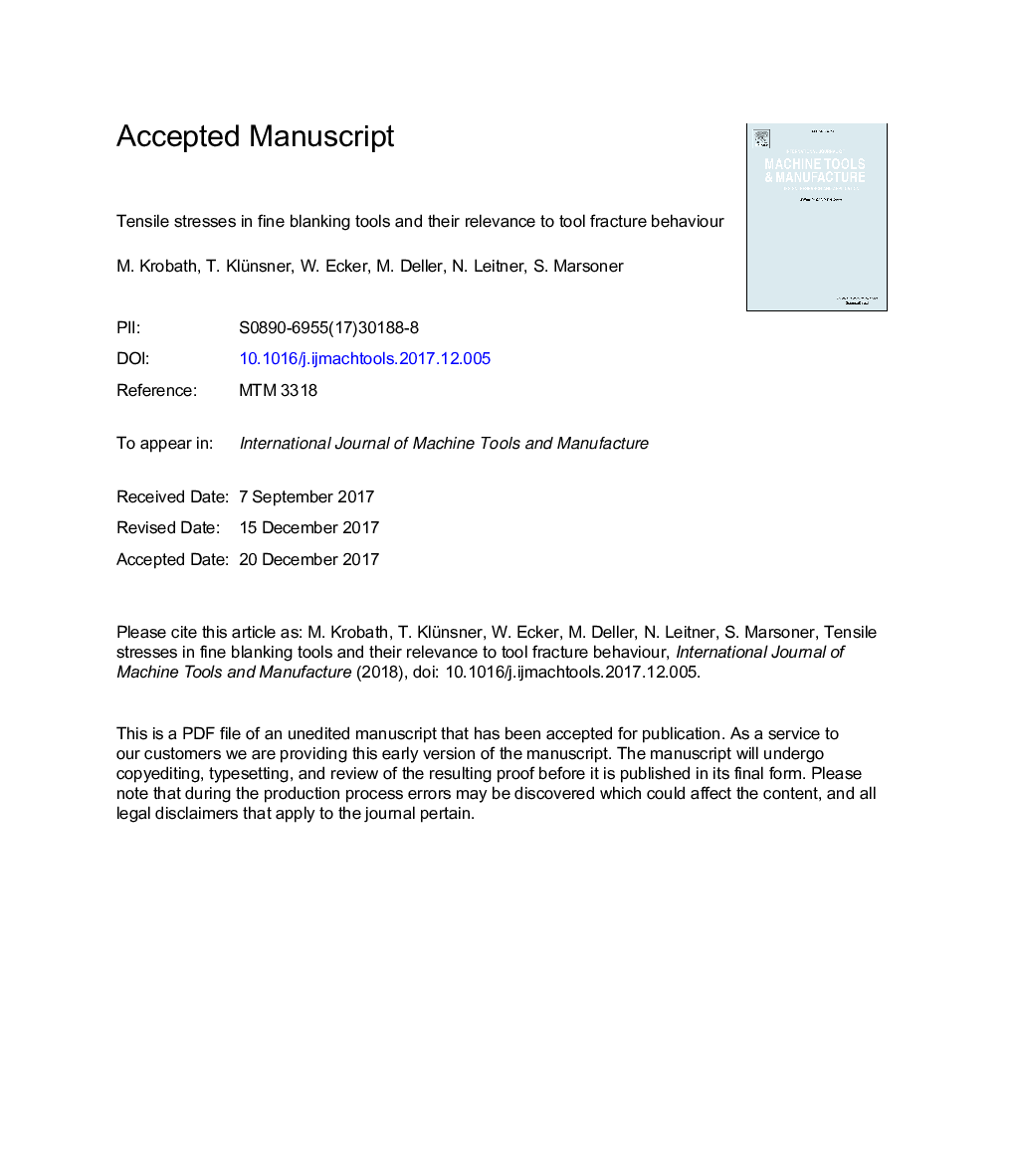| Article ID | Journal | Published Year | Pages | File Type |
|---|---|---|---|---|
| 7173369 | International Journal of Machine Tools and Manufacture | 2018 | 19 Pages |
Abstract
In order to enhance the productivity of the fine blanking process there is a tendency to apply high strength tool materials with superior resistance to wear and plastic deformation such as WC-Co hard metals. Due to the mean stress sensitivity of these high strength materials under fatigue loading conditions, there is a need to describe the tool load situation including previously unconsidered tensile tool load components and mean stress. To this end a finite element-based tool load analysis was performed that describes the cutting process and the tool's retraction from the remaining sheet material. The tool load was revealed to contain significant tensile components that occur during tool retraction. Their location on the lateral punch surface coincides with origins of tool fracture in two thirds of investigated fine blanking punches that failed close to the cutting edge in an industrial production scale fine blanking environment. The influence of friction between punch and sheet on the magnitude of the cyclic stress range and mean stress that act locally at the tool surface was investigated. As one of the main results, a first approximation for a surface quality requirement for fine blanking tools made of WC-Co hard metal was quantitatively estimated as a function of the friction coefficient based on linear elastic fracture mechanics.
Related Topics
Physical Sciences and Engineering
Engineering
Industrial and Manufacturing Engineering
Authors
M. Krobath, T. Klünsner, W. Ecker, M. Deller, N. Leitner, S. Marsoner,
